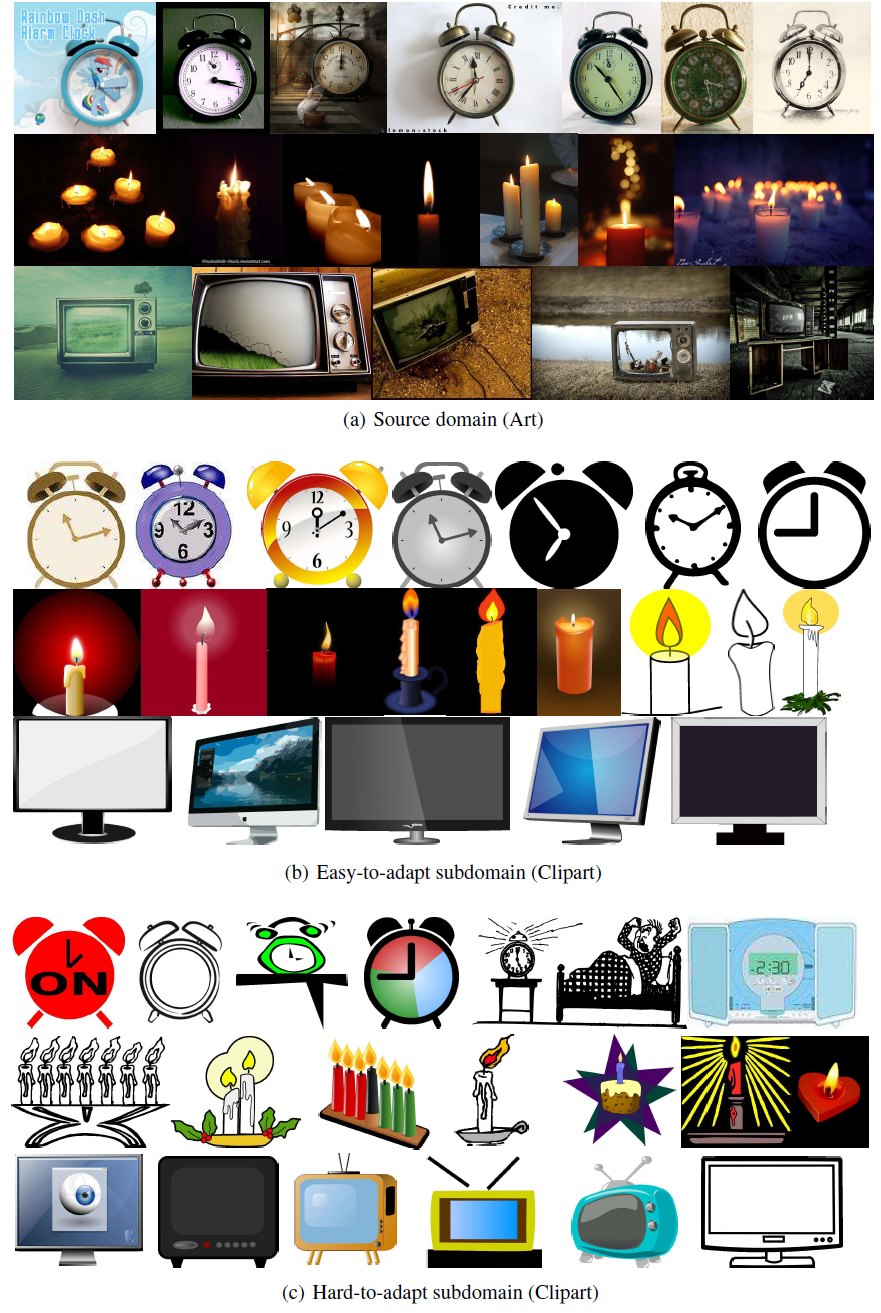Divide to Adapt: Mitigating Confirmation Bias for Domain Adaptation of Black-Box Predictors
Domain Adaptation of Black-box Predictors (DABP) aims to learn a model on an unlabeled target domain supervised by a black-box predictor trained on a source domain. It does not require access to both the source-domain data and the predictor parameters, thus addressing the data privacy and portability issues of standard domain adaptation. Existing DABP approaches mostly rely on model distillation from the black-box predictor, \emph{i.e.}, training the model with its noisy target-domain predictions, which however inevitably introduces the confirmation bias accumulated from the prediction noises. To mitigate such bias, we propose a new method, named BETA, to incorporate knowledge distillation and noisy label learning into one coherent framework. This is enabled by a new divide-to-adapt strategy. BETA divides the target domain into an easy-to-adapt subdomain with less noise and a hard-to-adapt subdomain. Then it deploys mutually-teaching twin networks to filter the predictor errors for each other and improve them progressively, from the easy to hard subdomains. As such, BETA effectively purifies the noisy labels and reduces error accumulation. We theoretically show that the target error of BETA is minimized by decreasing the noise ratio of the subdomains. Extensive experiments demonstrate BETA outperforms existing methods on all DABP benchmarks, and is even comparable with the standard domain adaptation methods that use the source-domain data.
PDF Abstract



 Office-Home
Office-Home
 Office-31
Office-31